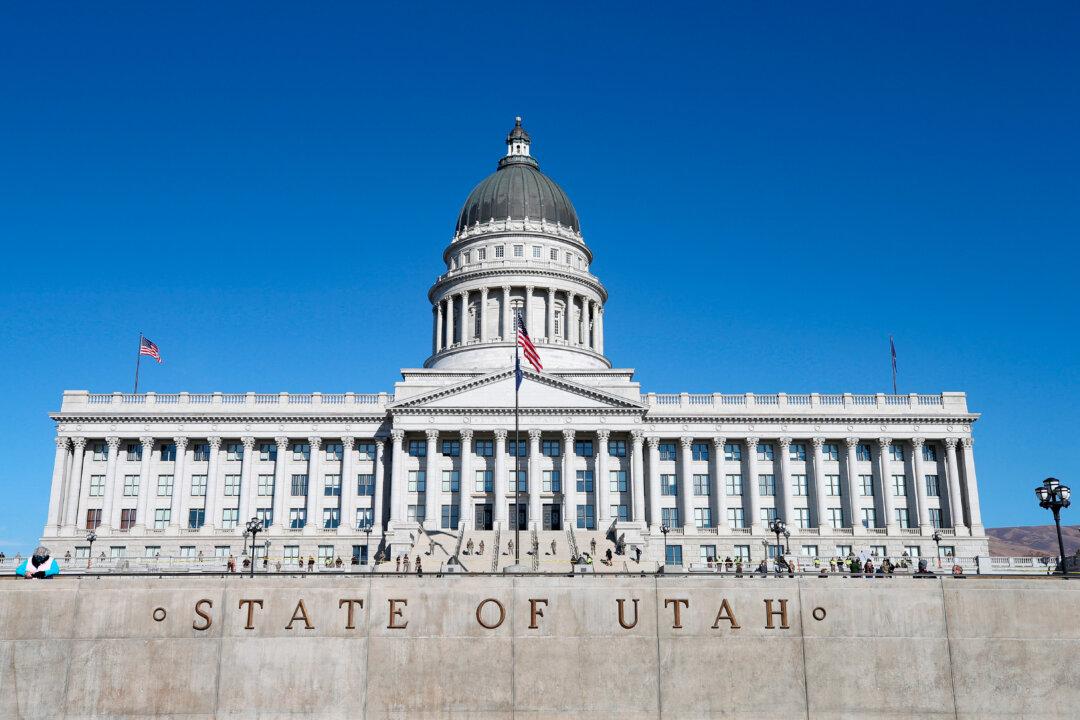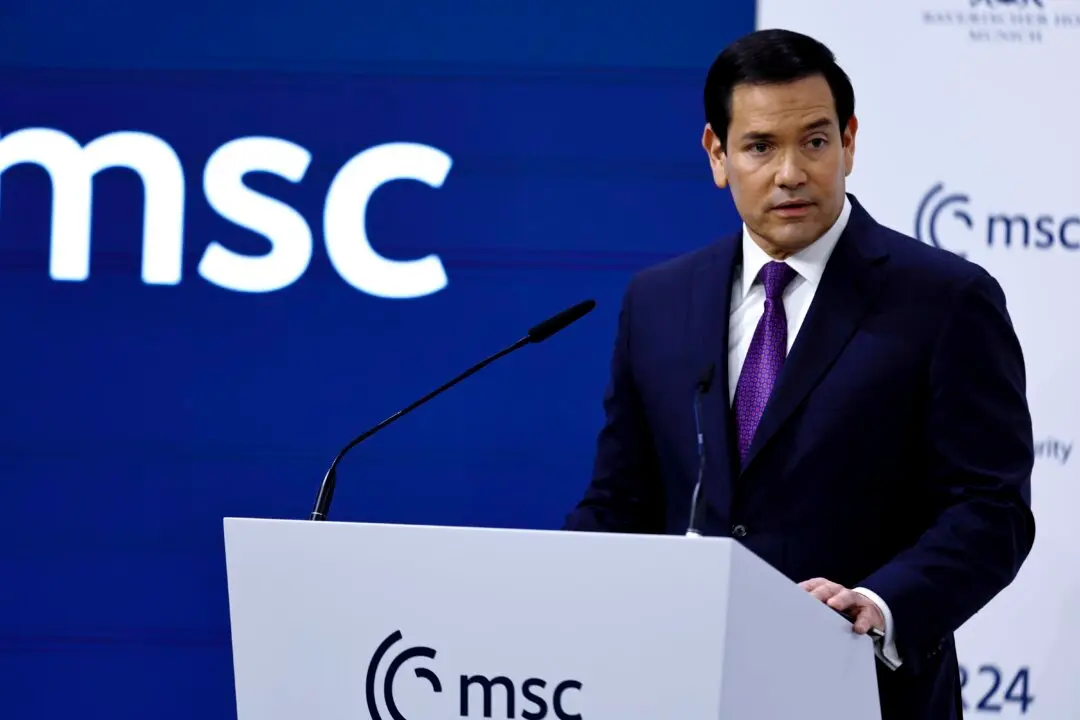Three Republicans vying to become Utah’s attorney general fielded questions on the drug crisis, presidential elections, and public trust in a June 11 debate held to help party members pick a candidate for November.
Derek Brown, Frank Mylar, and Rachel Terry will face off in the GOP primary for Utah’s chief law enforcement officer on June 25. The winner will run on Nov. 5 against Rudy Bautista, who advanced in the Democratic convention for attorney general of Utah on April 27.





